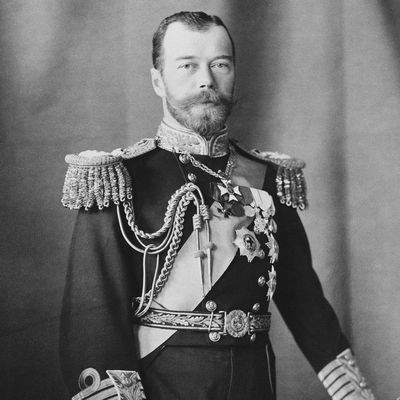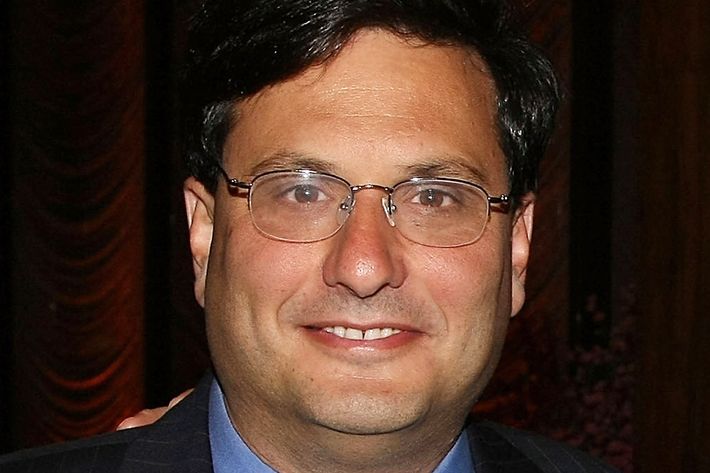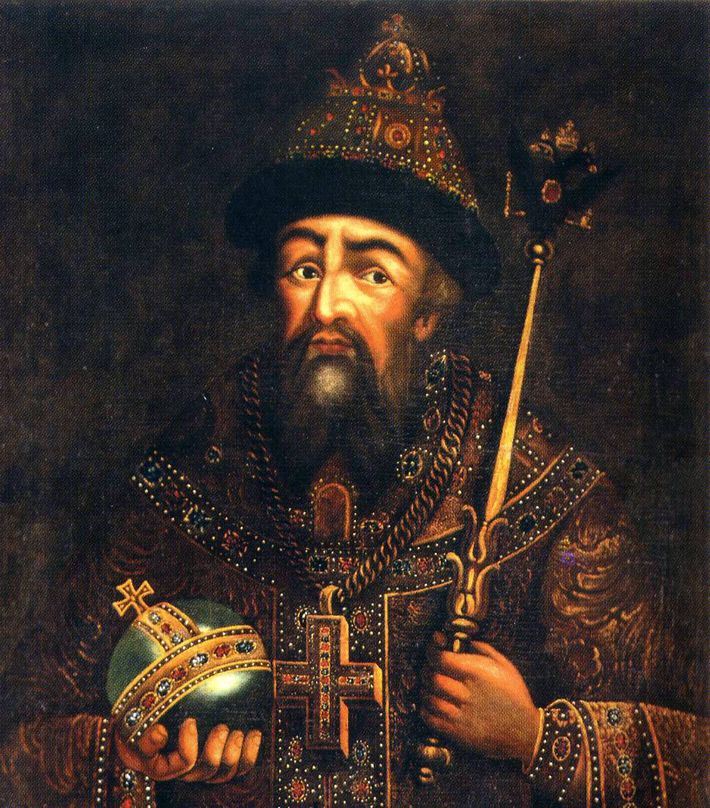
Ebola Czar. Ebola Czar. Ebola Czar. Thank you, gods of political absurdity, for your annual tithe to the gods of linguistic fun. I’ve been wandering around my house repeating it all morning: Ebola Czar! Give it a little Spanish lilt and you’ve got a credible political liberator, Simón Ebolazar, or an experimental novelist, Julio Ebolázar, or maybe it’s top of the ninth, bases loaded, and some indomitable Cuban Casey is at bat. The crowd goes crazy. Ebolazar!
And, in fact, maybe the crowd has gone crazy. A couple of hours ago, President Obama appointed lawyer and former vice-presidential chief of staff Ron Klain to serve as the administration’s Ebola Czar. I will leave it to others to argue about whether we need a federal appointee to manage a disease that has so far struck a grand total of three out of 318 million Americans. I want to raise a different question: Why do we call such appointees “czars”?

Time was, a czar was just a czar. For a solid millennium, the word was reserved for the rulers of Slavic Empires: Bulgaria, Serbia, most famously Russia. (All these are more properly tsars, a form of tsesar, from the Latin Caesar. “The spelling with cz is against the usage of all Slavonic languages,” the Oxford English Dictionary sternly informs us. That corrupt version made its way into English in the 16th century, via a German-speaking ambassador to the Russian empire.) The first Russian tsar was Ivan the Terrible, a brilliant political leader as well as a paranoid psychopath who massacred his citizens, murdered his own son, and used systemic torture to control his vast terrain. Peter the Great, of the House of Romanov, was also brilliant, also ordered the torture and execution of his son, and, like Abu Musab al-Zarqawi, was partial to carrying out beheadings himself. The last of the tsars was Nicholas II. As violent as his predecessors but less brilliant, or less lucky, he ruled one of history’s most formidable empires into the ground, and was eventually executed, along with his entire family, by the Bolsheviks.
That was in 1917. By 1919, the U.S. had a baseball czar, appointed to clean up the game after eight members of the Chicago White Sox were busted for fixing that year’s World Series. By 1922, we had a film czar, in the form of Will Hays — he of Hollywood’s infamous Hays Code — who set about cleaning things up in a different sense. Four years later, New York City was rocked, gently, by a scandal involving graft among dealers of milk and cream. (Its perpetrators included a group of heavies known as the Four Horsemen: Abraham Cohen, Philip Blass, Isidore Tiger, and Moe Shadinsky.) The city health commissioner called for an independent party to monitor the industry. The New York Times ran the story under the headline “City Milk Dealers to Appoint a ‘Czar.’” Either because of its customary straight face or because the new usage had not yet taken hold, the Times twice referred in the article to the planned appointee as “a milk dictator.”

What a fast, peculiar, thorough appropriation. Good-bye, fearsome Russian tsars; hello, czars as guardians of all things American and good, baseball and movies and milk and morality. Those guardians are appointed by presidents (or governors, or mayors), but it is the press, not the executive office, that insists on calling them czars. That is largely about expedience: “WMD Czar” is a lot more manageable in a headline than “Special Assistant to the President and White House Coordinator for Arms Control and Weapons of Mass Destruction, Proliferation, and Terrorism.” Executives, in fact, generally dislike, discourage, and avoid the use of czar — although the Government Accountability Office investigated in 2005, apropos of “Drug Czar,” and determined that such use does not “constitute unlawful self-aggrandizement.”
No, of course not. Still, it’s surprising that such an authoritarian word would find such a cozy home inside of American politics. None other I can think of would work. Dictator is out, as the Times quickly learned. You might get away once or twice with a Milk Dictator; it just sounds jokey, like Soup Nazi. But a WMD Dictator sounds like Saddam Hussein. Emperor and lord and monarch and king are likewise off the table. Khan would be strange, sultan would be wondrous, emir forget it, caliph, no chance after ISIS, if ever there was one before. Alone among such words, czar somehow slipped through our elaborate defenses against all things non-populist and foreign-sounding and Eastern. Imported from elsewhere in its quaint ancient package of velvet and steel, it sounds to our ears almost like a magical being, a wizard or a djin.
Now here we are, the United Czars of America. Some of the titles we’ve bestowed are catchy, like the Car Czar, and some are catching, like the Czar of Avian Flu. (A missed opportunity: We had SARS, but never a SARS Czar.) As inheritors of the original tsars, some are improbable (the Ethics Czar), some are impossible (the Democracy Czar), and some are entirely apt (the Terrorism Czar, the Censorship Czar, the Czar of Homeland Security). Some are geopolitically confusing: Here in America, we have Czars of Pakistan and Afghanistan and Iran. And, too, we appoint sovereigns of whole nations of sorrow, a Czar of Poverty, a Czar of AIDS. Anything could happen between these states, and so we have a Czar of Borders, and a Czar of Birth Control. We have a Copyright Czar, and a Czar of Asian Carp, and an Energy Czar, getting along who knows how with our Czar of Climate Change. We have many local czars, too, oxymoron be damned: New York with its Fashion Czar, Las Vegas with its Water Czar, Detroit with its Czar of Bankruptcy. All of us together have a Czar of e-Commerce: an e-czar. Once there was a Faith-Based Czar and once there was a Rubber Czar and a Reading Czar, whose name was G. Reid Lyon. There is, today, a Great Lakes Czar and a Technology Czar, a Cybersecurity Czar and a Food Czar, and (famously) a Drug Czar. There is a Weatherization Czar and a Weapons Czar, a Czar of War and a Czar of Pay.
So, sure, why not an Ebola Czar? He (or she: an Ebola Czarina) will fit right into our wild American Romanovs, Contagious II and Hope the Great and Problem the Terrible. How many people have we so far appointed to try to bring order to the terrain of our fuck-ups and fears? Czar of plague, czar of pestilence, czar of death: Maybe we fill these positions because, in the face of alarm, we yearn not to be the responsible citizens of a democracy but the protected subjects of an all-powerful emperor. Or maybe, more generously, in our language-loving, word-game-playing, high-Scrabble-score hearts, we just love the way that it sounds.





























